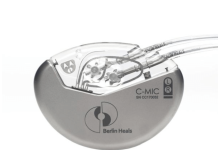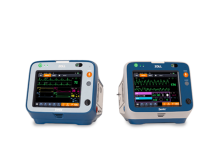Want to know what’s going on across the length of your gastrointestinal tract? Swallowing a smart capsule device developed by Envivo Bio could give you the answer, according to a new study.
Current medical procedures like endoscopy and testing of stool samples can provide important information on the environment in the gut—the microbes, proteins and metabolites that are within it—but are limited to certain areas such as the stomach and lower intestines.
Working out what happens in the small intestine is much more challenging, which makes for an imperfect understanding of how regional variations in microbial populations and biochemical activity in the GI tract may affect our health.
Endoscopic sampling of this part of the gut also requires the patient to be fasted and sedated, which could skew any findings. That’s one reason why at the moment stool sampling is the main way scientists study the gut microbiome and metabolites.
“No one would expect to understand the headwaters of a river by sampling the river delta 1,000 miles downstream, yet this is how we’ve historically approached gut-related research,” commented David Relman, M.D., of Stanford School of Medicine, who co-led the study.
Enter CapScan, a device that is swallowed like a tablet and travels through the gut, sampling its contents and collecting data as it goes under normal physiological conditions. It consists of layers of coatings that are dissolved at different pH levels in the GI tract, revealing a reservoir that draws in the contents of the gut lumen that can be analyzed once the capsule is passed.
Envivo’s CEO Dari Shalon, Ph.D., said in a press release that it is the first device of its kind, allowing researchers “to sample and assess each of the diverse intestinal ecosystems separately and directly for the first time.”
In the new study, researchers led by a team at Stanford University used CapScan to collect 240 intestinal samples from 15 healthy individuals, which were analyzed for bacteria, viruses, host proteins and metabolites from food. The subjects swallowed four capsules, each designed to open at different acidity levels.
RELATED: Brainlab Launches ExacTrac Dynamic® Surface Positioning and Monitoring System
They found that the upper intestine differed across all these areas—sometimes dramatically—with regional variations in the microbiome and protein and bile acid profiles that were highly distinct from what would be encountered in stool samples.
There was also considerable variation between subjects, which highlights the “dynamic environment of the small intestine,” the researchers wrote in a paper on the study published in the journal Nature.
The team identified nearly 2,000 metabolites, as well as associations between diet—including fruit and alcohol—and metabolites, and a species of bacteria called Blautia that seemed to be closely involved with fatty acid metabolism.
Envivo said it is now working with the Stanford team on a clinical trial using CapScan to try to gauge the impact of the gut microbiome on the health of mothers and children in low- and middle-income countries, with funding from the Gates Foundation.
The company also wants to work with biopharma companies and academic institutions on microbiome-related research and drug discovery and development programs.
The study comes shortly after the FDA approved the first microbiome-based drug products designed to treat illness—specifically prevention of the recurrence of a Clostridioides difficile infection following antibiotic treatment.
Seres Therapeutics got approval from the U.S. regulator for its orally-administered Vowst product last month, a few months after Ferring Pharmaceuticals got a green light for its enema-delivered formulation Rebyota.
Another player in the category, Finch Therapeutics, started dosing patients with its oral CP101 therapy last year, with top-line results due in the first half of next year.




